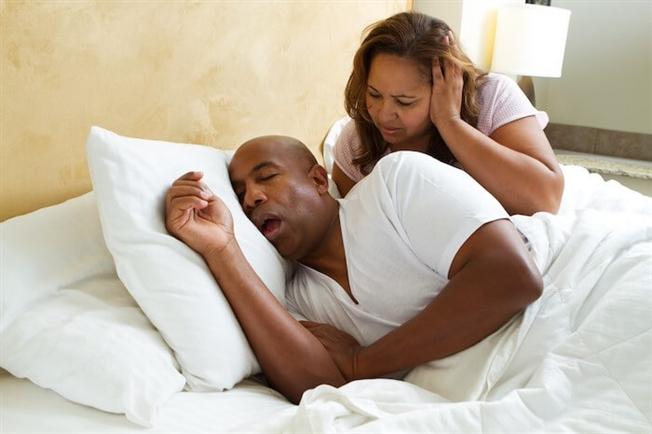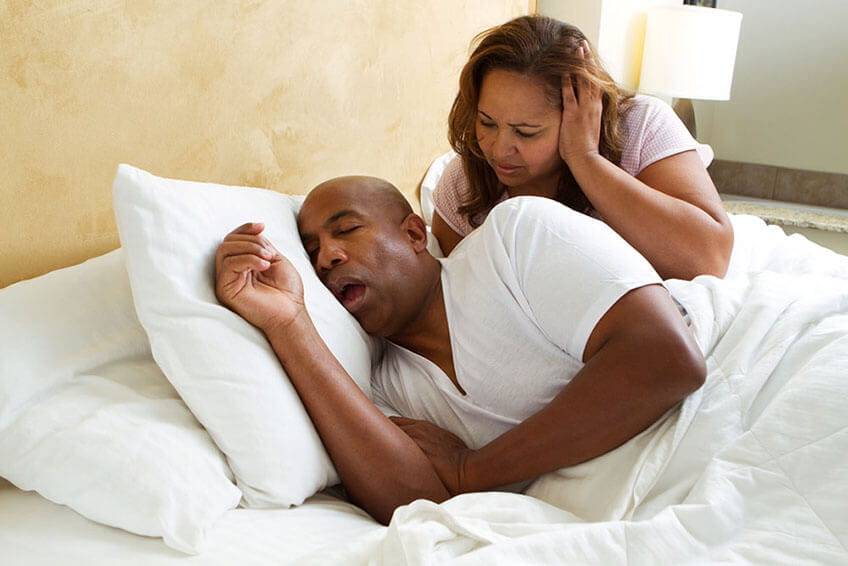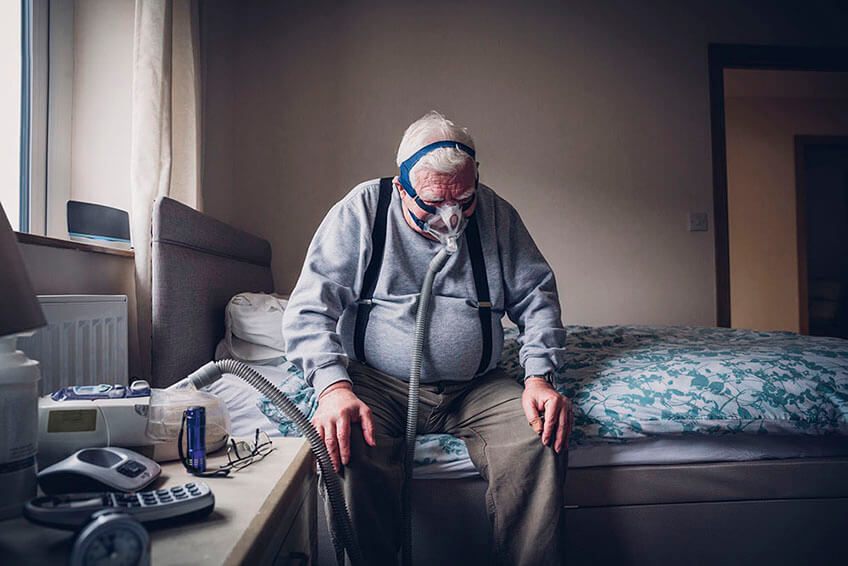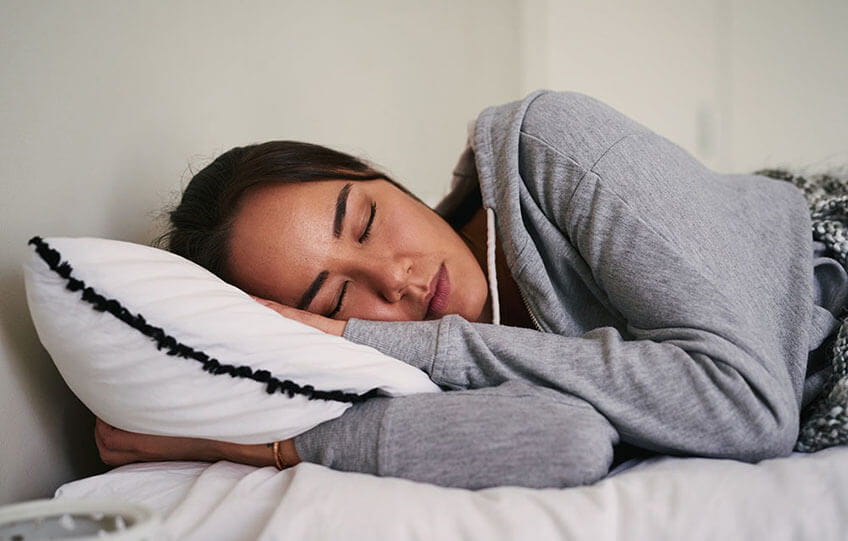Implant instead of CPAP? The new cure for sleep apnea

An estimated 22 million Americans suffer from sleep apnea, a potentially serious disorder marked by multiple, extended pauses in breathing during sleep. This results in fragmented and poor quality of sleep, directly affects the body's supply of oxygen, and ultimately, creates numerous health concerns. (Find out more about the importance of sleep.)

- High blood pressure
- Stroke
- Type 2 diabetes
- Obesity
- Depression
It is associated with several other conditions and sometimes is the cause for traffic accidents and accidents with heavy machinery, due to persistent drowsiness from interrupted sleep.
The most common form of sleep apnea―obstructive sleep apnea (OSA)―can be treated effectively, but approximately 80 percent of people with moderate to severe OSA remain undiagnosed. And while with a bedside CPAP (continuous positive airway pressure) has worked for some, many who struggle with sleep apnea are now considering a new technology, the Inspire® implant instead of CPAP.
Approximately 80 percent of people with moderate to severe OSA remain undiagnosed.
"Sleep apnea has become a huge health concern in the U.S.," says Kenneth B. Briskin, MD, an ear, nose and throat (ENT) specialist at Main Line Health. "It affects a significant portion of the population and impacts many aspects of physical and mental health. And it not only affects those suffering from this disorder, it affects their bed partners as well in terms of continuously interrupted sleep."
Why implant instead of CPAP
With OSA, there is a narrowing or a blockage in the back of the throat that prevents air from flowing smoothly during sleep. This occurs when the tongue collapses against the soft palate and the soft palate collapses against the back of the throat, causing pauses in breathing. OSA is commonly treated with a bedside CPAP machine that includes a mask or other device that fits over the nose or the nose and mouth, then connects through a long tube to a small machine that sends a continuous flow of air to keep the airway open.

The Inspire implant is a device that works inside the body to stimulate the natural breathing process, opening the airway during sleep and allowing oxygen to flow naturally. The device is implanted under the skin of the jawbone and the chest by an otolaryngologist (an ENT specialist) during a minimally invasive procedure. It requires just two small incisions, and most patients return home the same day.
Once the patient has healed from the procedure, which takes about one month, the device is activated. The patient then uses a small handheld remote to turn Inspire on before bed and off when they wake up.
"Inspire is very straightforward and effective treatment for patients with obstructive sleep apnea for whom CPAP hasn't worked," explains Dr. Briskin, who is among only a small number of specialists across the country trained in this innovative technology. "Simply put, the device gently stimulates the nerve that controls the tongue to bring it forward and prevent the airway from being blocked during sleep."
When to consider implant instead of CPAP
Inspire is indicated for patients age 18 and older who have been diagnosed with moderate to severe OSA, are unable to use or derive benefit from CPAP, and are not considered obese. Studies show the Inspire therapy is 75 to 80 percent effective in eliminating OSA.

The Inspire Therapy is currently available at Riddle Hospital and will soon be available at Lankenau Medical Center. Learn more about Inspire, and the comprehensive diagnosis and treatment services for sleep disorders available at Main Line Health
If you are experiencing symptoms of sleep apnea, such as loud snoring, gasping for air during sleep, awakening with a dry mouth or dry throat, morning headache or excessive daytime sleepiness, but have not been diagnosed, talk with your primary care physician about ordering a sleep study.
Main Line Health serves patients at hospitals and health centers throughout the western suburbs of Philadelphia. To schedule an appointment with a specialist at Main Line Health, call 1.866.CALL.MLH (225.5654).
 Content you want, delivered to your inbox
Content you want, delivered to your inbox
Want to get the latest health and wellness articles delivered right to your inbox?
Subscribe to the Well Ahead Newsletter.
